All products featured are independently chosen by us. However, SoundGuys may receive a commission on orders placed through its retail links. See our ethics statement.
Best open back headphones
Published onFebruary 7, 2025

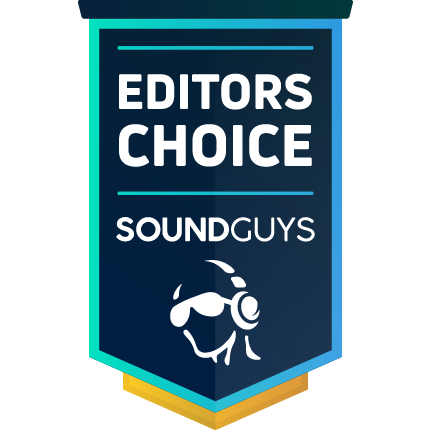




Most headphones you find are closed-back, but for the discerning listener, open-back headphones are highly sought-after. We’ve tested and compiled oodles of open-back headphones over the years and distilled the selection down to our best picks. Whether you identify yourself as an audio enthusiast, a casual listener, a budget-conscious listener, or you enjoy gaming, we’ve got you covered.
- This list was updated on February 7, 2025, to update the information within.
- This list was updated on April 9, 2024, to add more notable mentions.
- This article was published on December 28, 2023.
Take SoundGuys’ quiz to find your best fit
Best open-back headphones for most people: Beyerdynamic DT 900 PRO X
It’s a tough call because so many open-back headphones sound fantastic, but the Beyerdynamic DT 900 PRO X also feels very cozy to wear, in addition to a great frequency response. These metal-clad headphones come with cushy velour ear pads and removable cabling. They’re designed with repairs in mind, in addition to a totally reasonable price tag for the performance and quality offered. You can even replace the STELLAR .45 dynamic drivers without special tools.
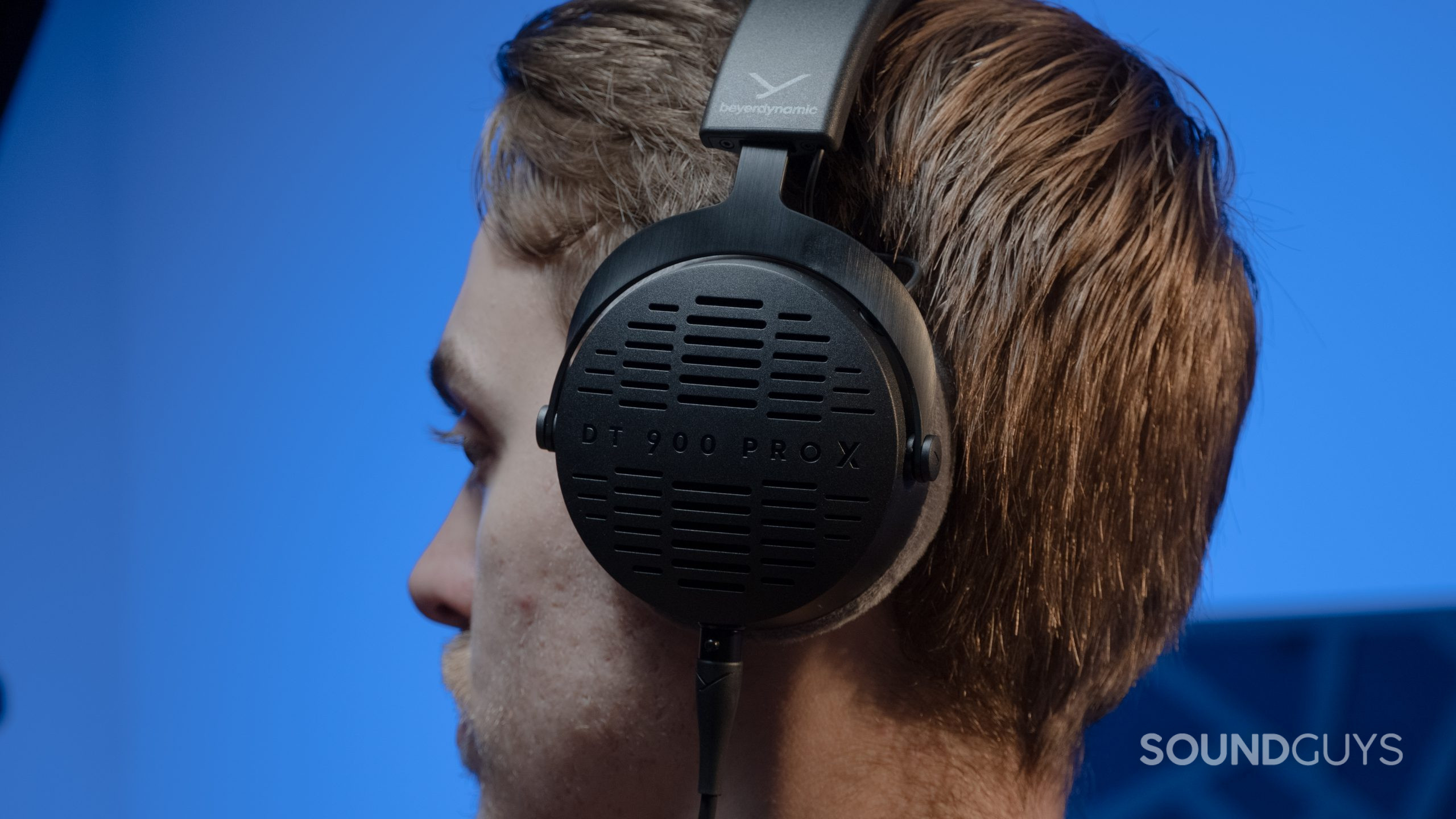
Unlike some other popular open-back headphones, Beyerdynamic made these feel less plasticky than some headphones. For those out there who do not have or want a headphone amplifier, the DT 900 PRO X has an impedance of 48Ω, and therefore, your laptop can probably power the drivers just fine. Depending on your use, the headphones ship with a 1.8m and 3m cable and connect to the headphones via a mini-XLR and a standard 3.5mm headphone jack on the input. Plus, there’s a 1/4-inch adapter and a utilitarian soft carry bag. The bag could be nicer, but it works.
For the price, the DT 900 PRO X headphones hit the sweet spot of just what you need and not much you don’t. If you want something even higher end, we’ve got some picks, as well as inexpensive and planar headphones below.


Loading chart ...
The frequency response of the Beyerdynamic DT 900 PRO X shows more treble than is ideal, but also greater sub-bass extension than many other open-back headphones.
Best planar open-back headphones: HiFiMan Sundara
HiFiMan has made a name for itself by delivering quality headphones at prices that undercut the old standbys. Arguably, the Sundara is one of its greatest successes as a pair of open-back planar headphones that don’t cost the same as rent.
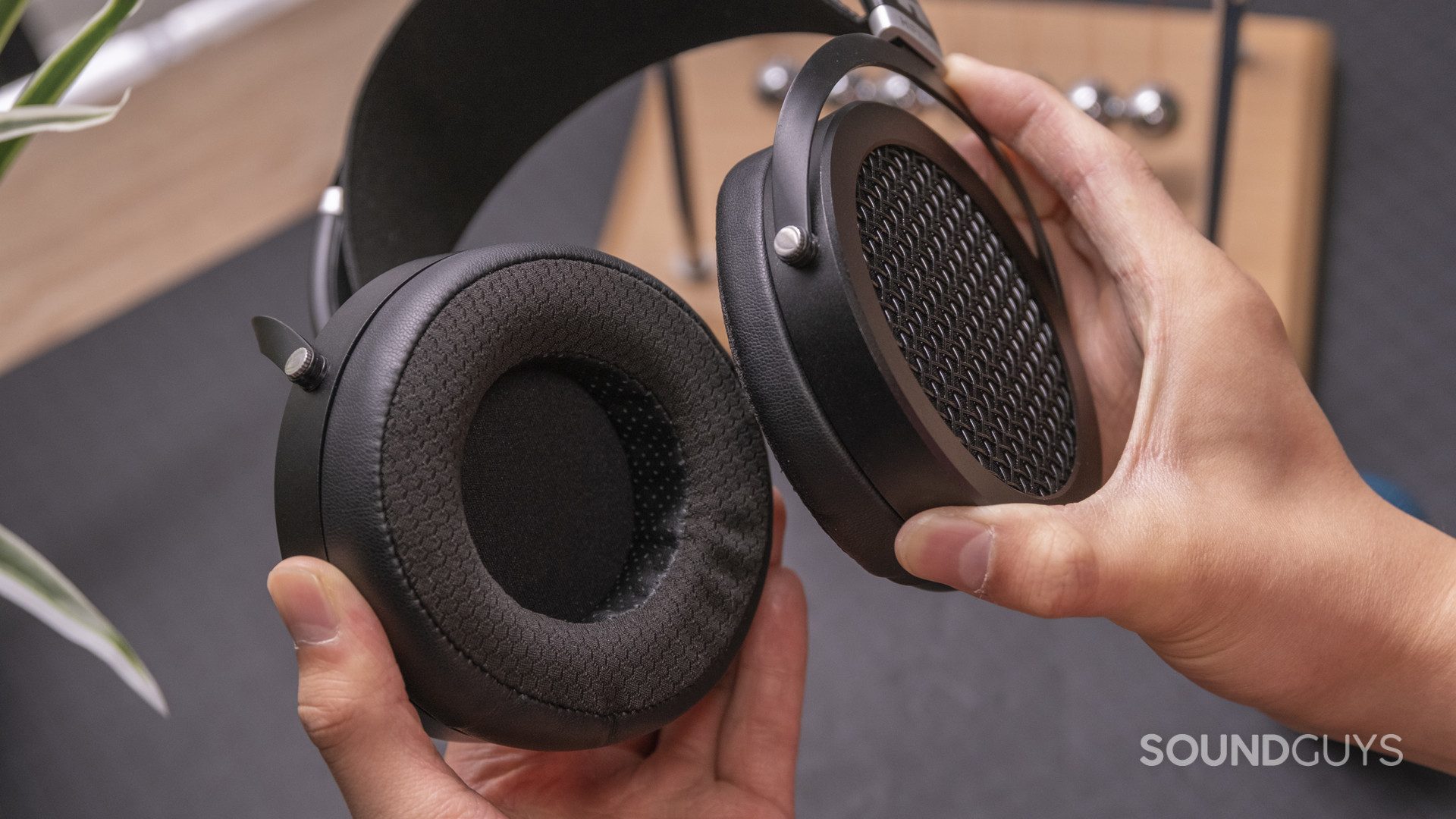
Nobody is calling the Sundara cheap, but planar magnetic drivers come at a steep cost typically. Speaking of costs, the Sundara will also require a headphone amp to run properly with an impedance of 37Ω and an efficiency rating of 93dB/mW. No matter, you won’t be leaving the areas when you wear the chunky 372g headphones, so plugging in shouldn’t be an issue. HiFiMan includes one 1.5m Y-split cable cable, which is the weakest link in the package.
One of the advantages of planar magnets lies in their ability to convey fast dynamics with greater accuracy than conventional dynamic drivers. Think of plucking a string or a drumstick hitting a cymbal when you think about that. The frequency response in combination with the inherent advantages of the planar magnets, offers something a little different in the Sundara worth checking out.

Loading chart ...
Closely matching in the treble, mids, and higher bass registers, the Sundara headphones sound great on most applications, save for rumbly action movies.
Best budget open-back headphones: AKG K240 Studio
These days, you pretty much need to anticipate breaking the three-digit mark to get decent open-back headphones. However, when budgets get tight, the AKG K240 Studio headphones offer solid value for less than $100. The tension self-adjusting headband, lightweight (only 240g), and generous ear cup size mean they feel comfortable. While perhaps not the most robust build out there, they’re evergreen headphones with a legacy reaching back to the 1970s, and plenty of casual and enthusiast users alike reach for them.
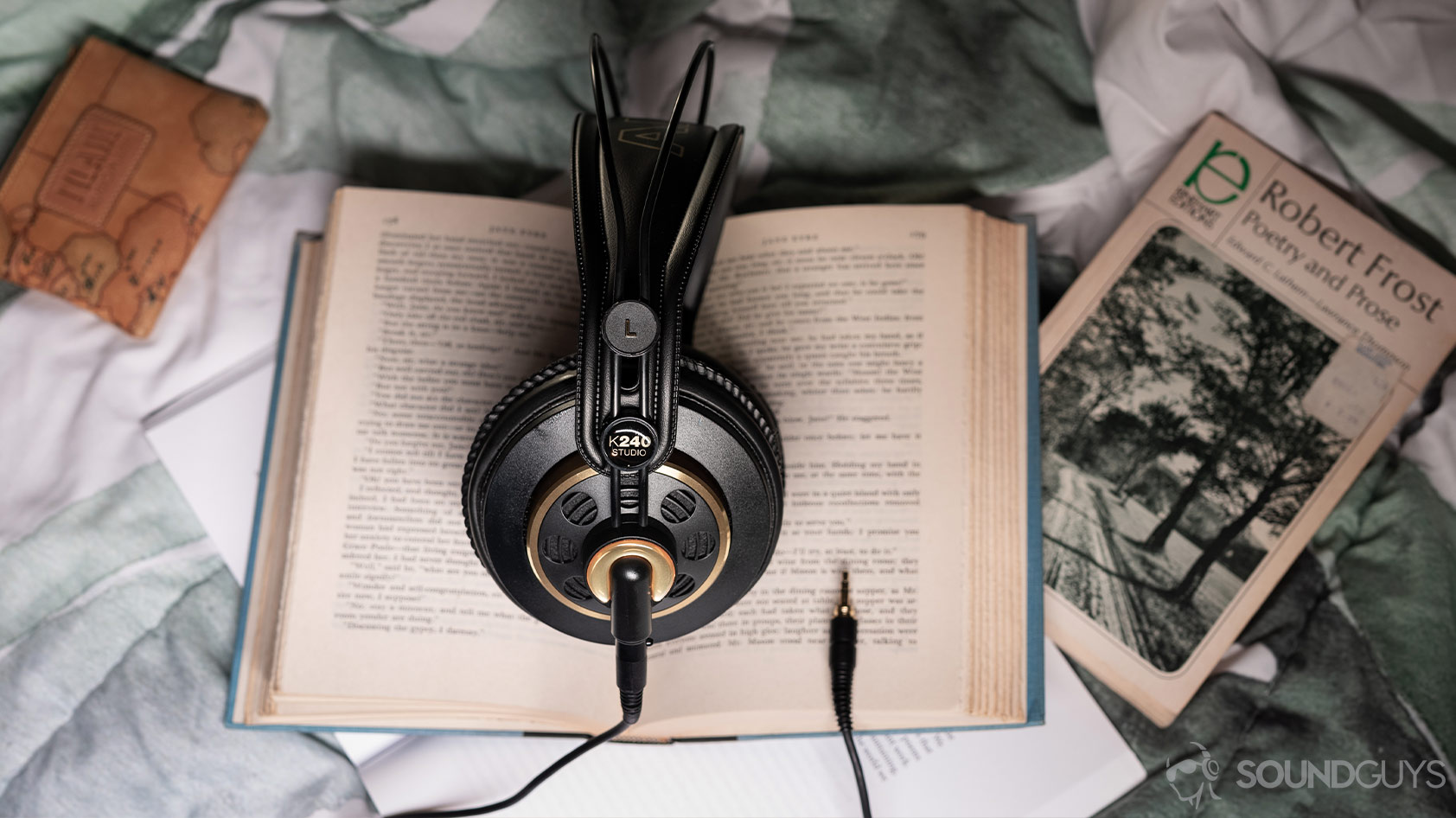
Technically, the K240 Studio is considered semi-open-back headphones. Effectively, you get the same benefits, as well as the sound leakage and absence of isolation you’ll find on any set of open-back headphones. For well under $100, the K240 Studio has a removable mini-XLR cable that terminates in a 3.5mm jack. Due to the ubiquity of these headphones, you can source and replace most components with relative ease. The sound is less accurate to studio standards these days, with not a ton of bass volume, as expected. You’ll want to baby these headphones somewhat, as their durability is a bit suspect. However, for those dipping their toes in or working with a low budget, the K240 Studio is our value-priced pick of the bunch.

Best studio open-back headphones: Drop x Sennheiser HD 6XX
The first thing to know about the Drop x Sennheiser HD 6XX is that they sound very much like the pricier siblings in the 6XX series. Secondly, you ought to know that these open-back headphones cost significantly less dough than those venerable siblings, such as the HD 650 from which these borrow.
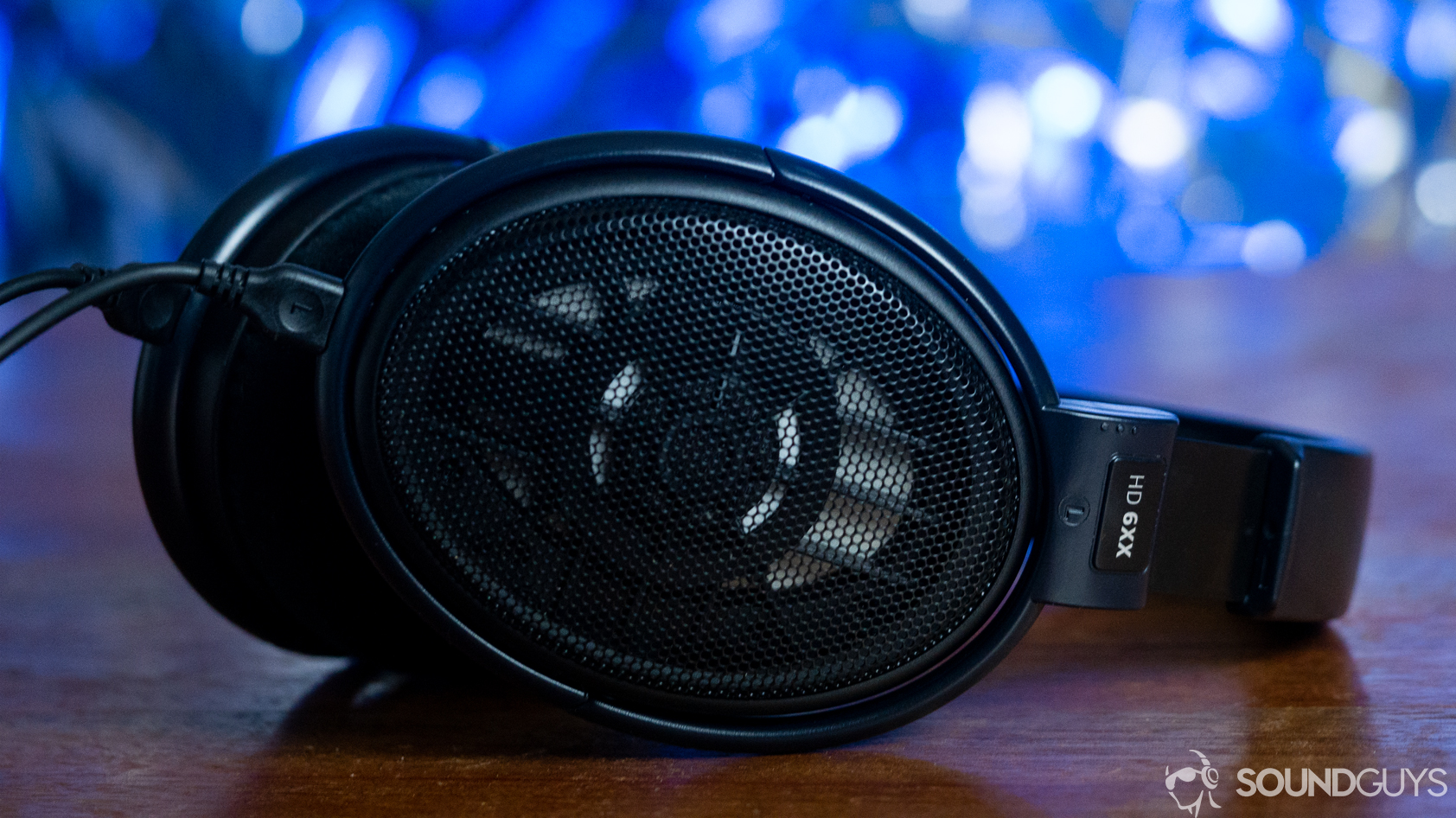
While much can (and has) been written on the benefits of spending the extra bucks to get the upscale version of any set of headphones, if your goal is to mix audio and not to overspend on luxury, these are the right headphones for you. For the purposes of critical listening, the Drop x Sennheiser HD 6XX adheres rather closely to our legacy studio frequency response, with the predictable sub-bass volume rolloff typical of the majority of open-backs. Through the midrange and treble, the tuning gets very close to suitably neutral for sound engineering.
In addition, the manageable 260g mass means you can reasonably don these for hours while you get in the weeds of audio production. The headphones use a removable 2-pin connector Y-cable ending in a conventional 3.5mm TRS headphone jack. With a 300Ω impedance, you’ll want an amp.

Loading chart ...
Basically, you get a tuning on the HD 6XX that approaches the preferred flatter bass response desired for accurate audio edits.
Best open-back headphones for gaming: Corsair VIRTUOSO PRO
If what appeals to you is greater immersiveness with greater localization, and lack of heat build-up for gaming with open-backs, check out the Corsair VIRTUOSO PRO. While this market is still pretty niche, there are some good reasons to consider open-backs for gaming, considering that most people game in quiet spaces anyhow, and portability is not a concern.
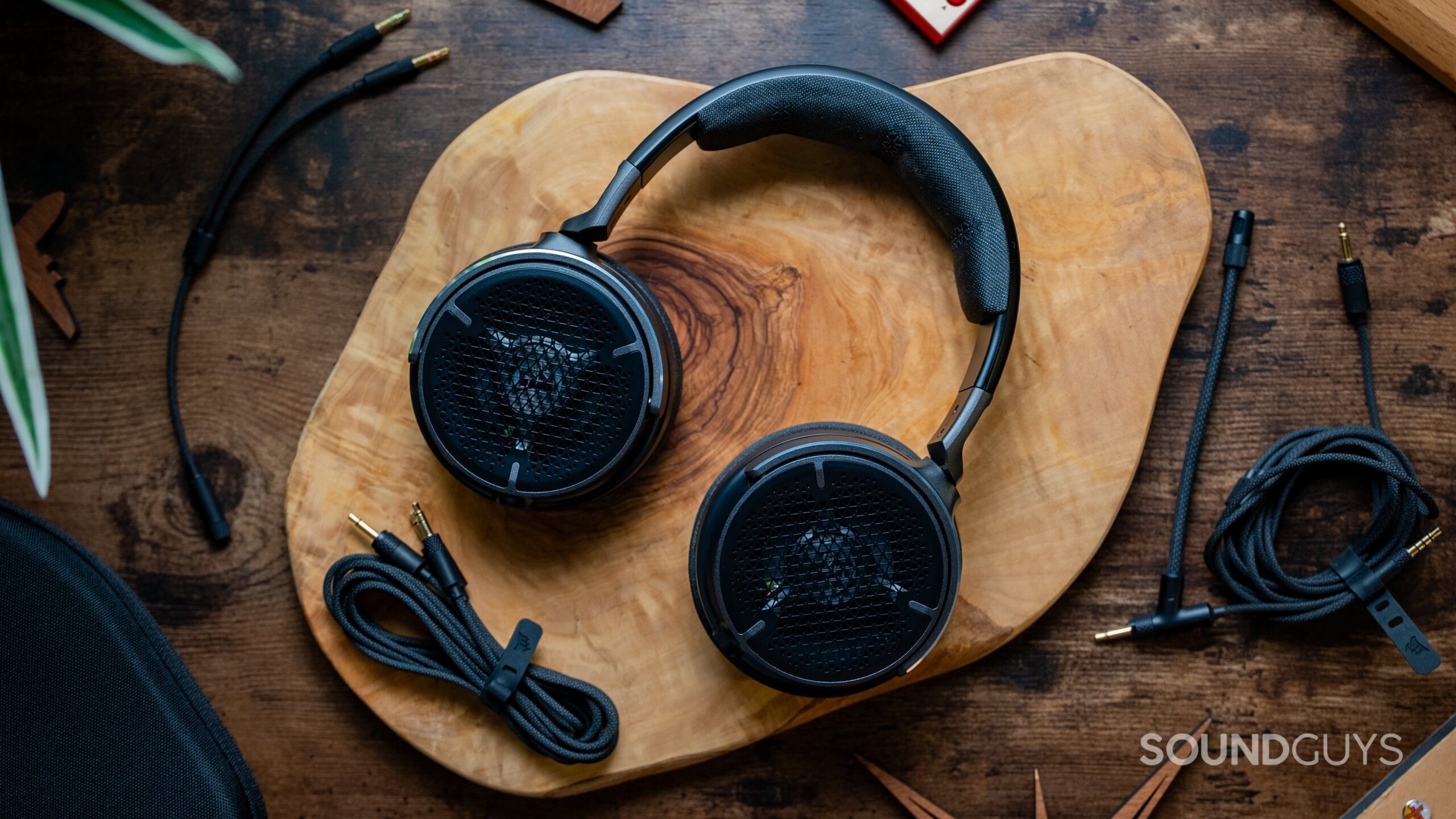
The VIRTUOSO PRO headset contains 50mm dynamic drivers in a pretty traditional looking design with a nice sounding detachable boom mic. While the padding takes some breaking in and is made of unremarkable fabric, gamers won’t have to contend with sweat. Plus, you get two cables and a headphone splitter. Overall, the sound emphasizes low mids and higher bass frequencies more than nearly all open-back headphones and more than our headphone preference. Still, for experiencing immersion with rumbling sounds in games, it’s not bad at all. Check it out; it might just be the right choice for you.

Loading chart ...
For open-backs, these offer more low end than expected.
The Sennheiser HD 490 Pro are great open-back headphones for audio professionals
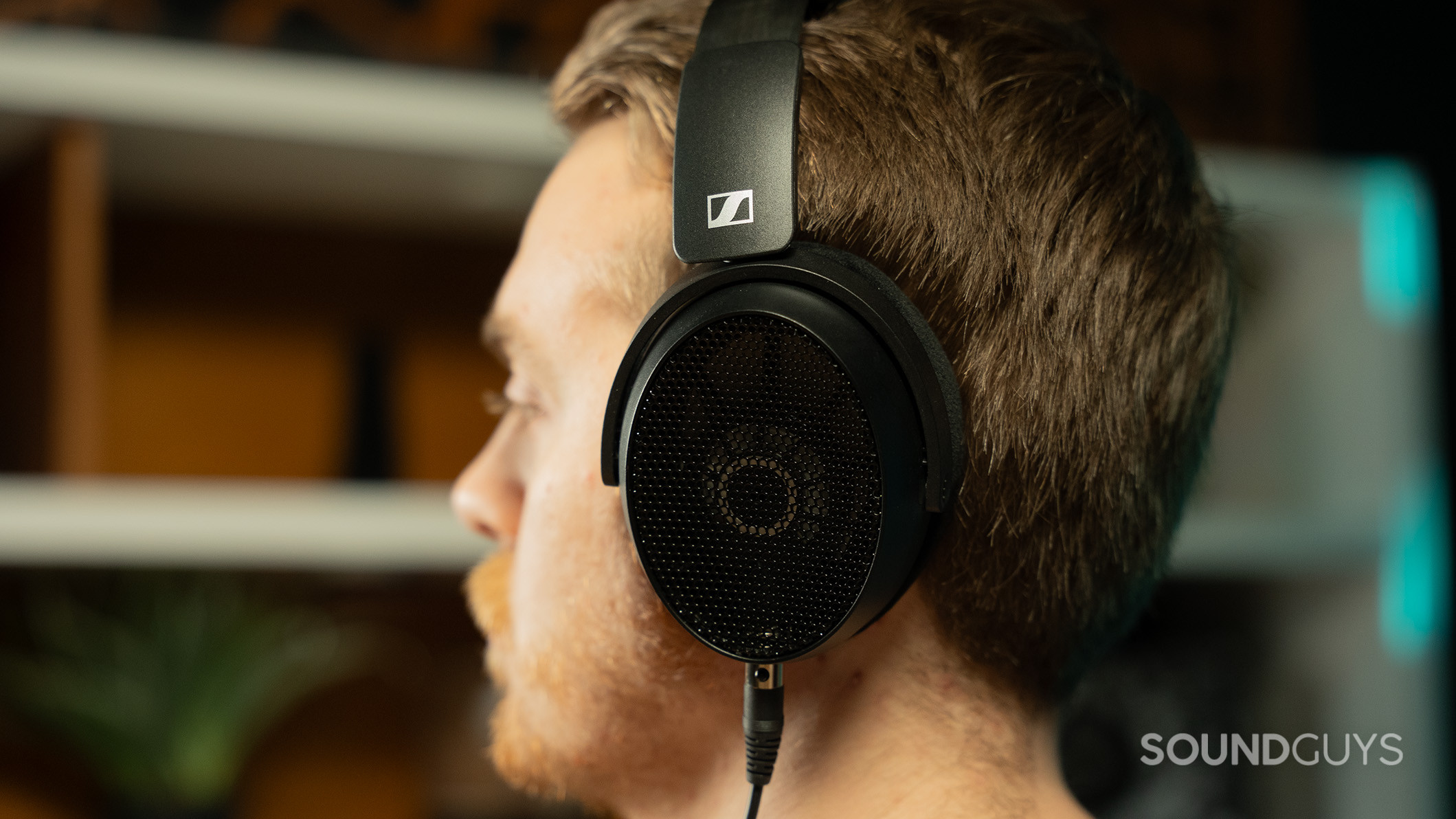
The Sennheiser HD 490 PRO is ideal for bedroom music producers. The swappable velour and fabric ear pads provide versatility for those needing mixing and producing headphones on a limited budget. Sennheiser partnered with Dear Reality to develop the dearVR MIX plugin, a $125 value that you get a free access code for included with the Sennheiser HD 490 Pro. With durability, versatility, and good sound quality, you can’t go wrong with these open-back headphones.

Who should buy the Sennheiser HD 800 S?
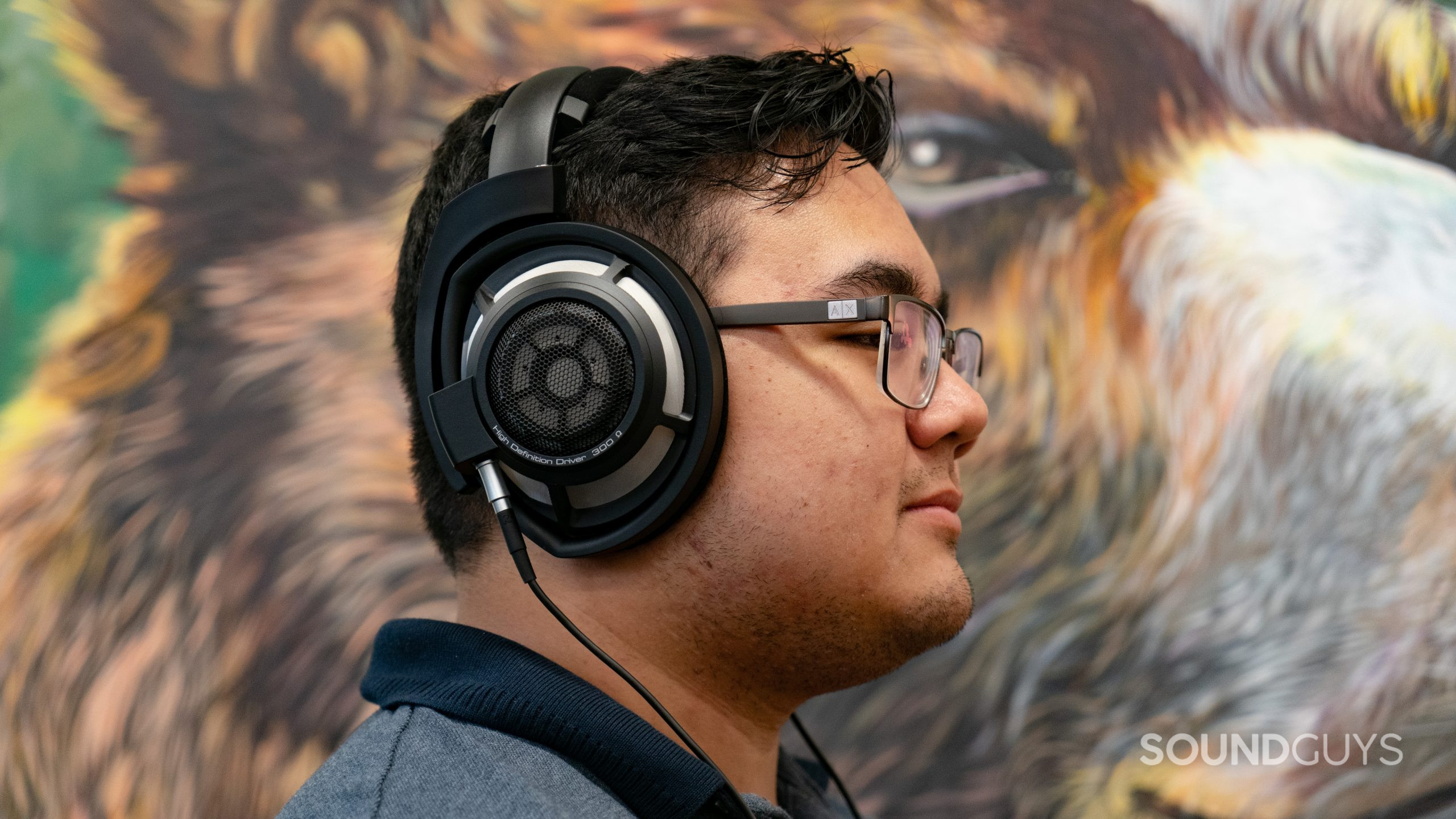
Look, most of us cannot afford the Sennheiser HD 800 S, but we’d be remiss not to mention them. These chunky open-back headphones feel great and offer an excellent, wide, deep, and immersive sound. Landing firmly in the legacy of studio style frequency responses, don’t expect huge low end, but do expect your audio to sound pretty accurate. The uniquely shaped ear cups position the dynamic drivers at an angle to really pinpoint how you receive the sound. Truly, these are worth your time if you have the cash.

Best open-back headphones: Notable mentions
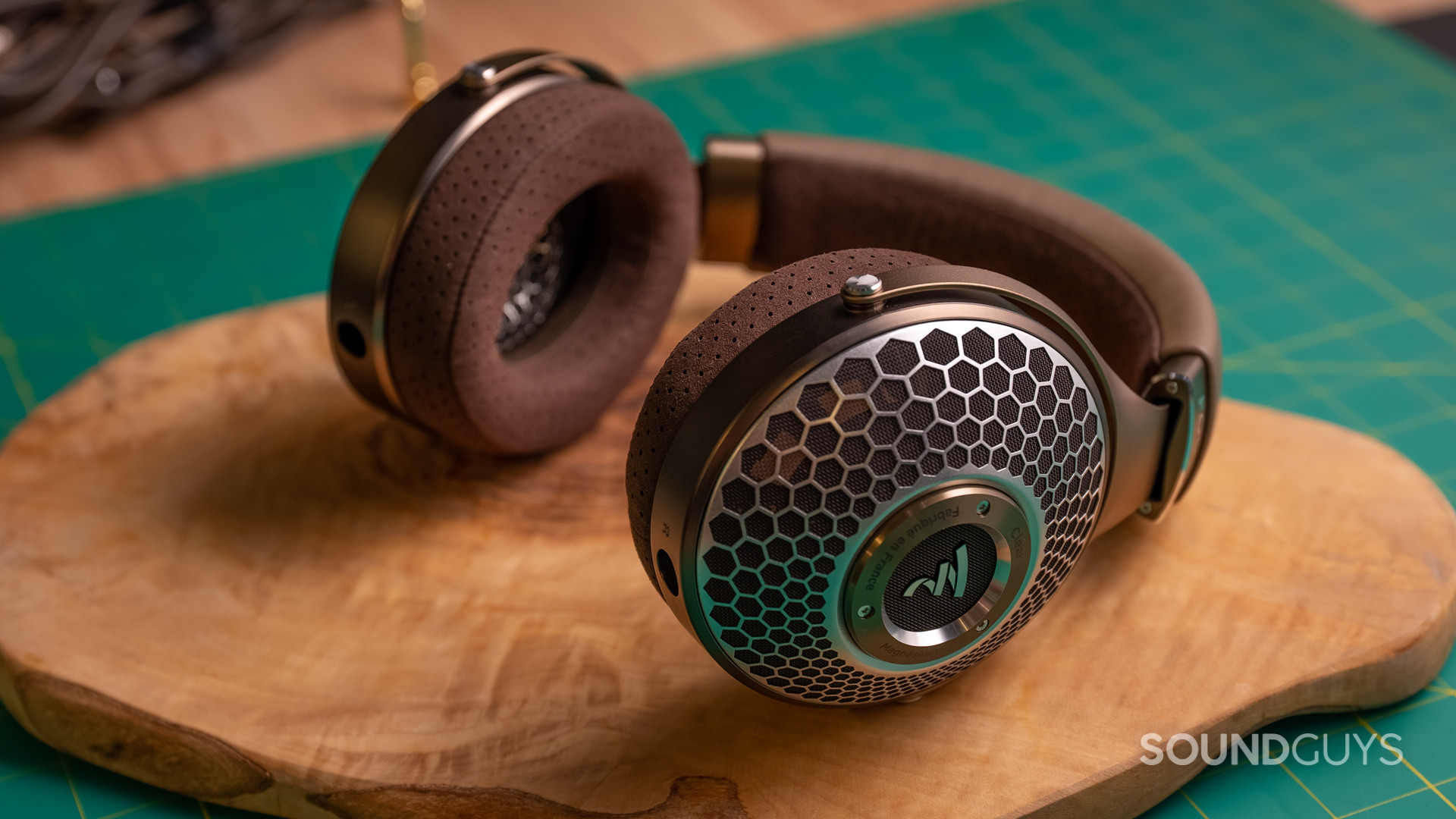
- AKG K702: AKG makes some of the most comfortable open-back headphones, including these. We just wish they felt a little more robust. Nevertheless, when found at a good price ($135 at Amazon) these supply a good studio style frequency response suitable for sound mixing.
- Audeze MM-100 ($399 at Amazon): These have a great build quality and planar magnetic drivers at a reasonable price.
- Beyerdynamic DT 990 Pro: For those who already own a headphone amp, these come in for fewer bucks ($169 at Amazon) than the DT 900 PRO X, but they need the amp. Otherwise, they sound great and do what they promise: studio style tuning.
- Focal Clear MG: For those with cash to burn, these open-back headphones use a magnesium driver, similar to a standard dynamic driver, offering a heavy, but comfortable fit. The sound sits in between consumer friendly and studio appropriate, which will make a lot of people happy. This all comes in at a wallet destroying price of $1499 at Amazon.
- Focal Hadenys: Though a more “entry-level” option at around $699 at Manufacturer site, these headphones are an excellent, durable, and very eye-catching option.
- Koss Porta Pro: These are the odd one out of the bunch, and definitely the most portable headphones on the list. As an inexpensive folding set of on-ear open-back headphones they do not purport to suit studio style tastes. Rather, they are meant for on-the-go comfort with a fairly consumer-friendly sound. You can even wear them with glasses comfortably, for only $59 at Amazon.
- Meze Audio 109 Pro: It’s unusual to find open-back headphones without a notable bass volume rolloff. In this respect, the wooden Meze Audio 109 Pro uniquely retain the low end for $799 at Amazon. They introduce more distortion than your typical open-back headphones, but still, they sound good and look good.
- Neumann NDH 30 ($649 at Amazon): If you often mix on a studio monitor system or are simply seeking a reference headphone, the Neumann NDH 30 are worth considering.
- Sennheiser HD 560S: These mainly plastic headphones don’t shy away from their decidedly utilitarian ethos. They sound pretty good, not overly trebly or bassy, with the right amount of midrange. Check them out for $207 at Amazon.
- Sennheiser HD 600: Okay, while it is true that each model in the HD 6XX series possesses differences, you ought to compare them more in-depth against the Sennheiser HD 660S ($349 at Amazon), HD 660S2 (for $499 at Amazon), and HD 650 (for $399 at Amazon). They all supply a suitably similar “neutral” frequency response for critical listening and sound production, and many parts are easily replaced. For most folks, it makes the most sense to grab whichever pair you find the cheapest. Keep in mind, it might be easiest to track down spare parts for the HD 600 ($299 at Amazon) simply because they’ve been out since 1997.
- Sennheiser HD 660S2: the latest HD 600-series headphones, these cans $499 at Amazonhave a little more bass than the rest of its older brothers.
- Sony MDR-MV1 ($347 at Amazon): These are a bassy set of open-back headphones best for content creators who are looking to step up their monitoring game.
What you should know about open-back headphones:
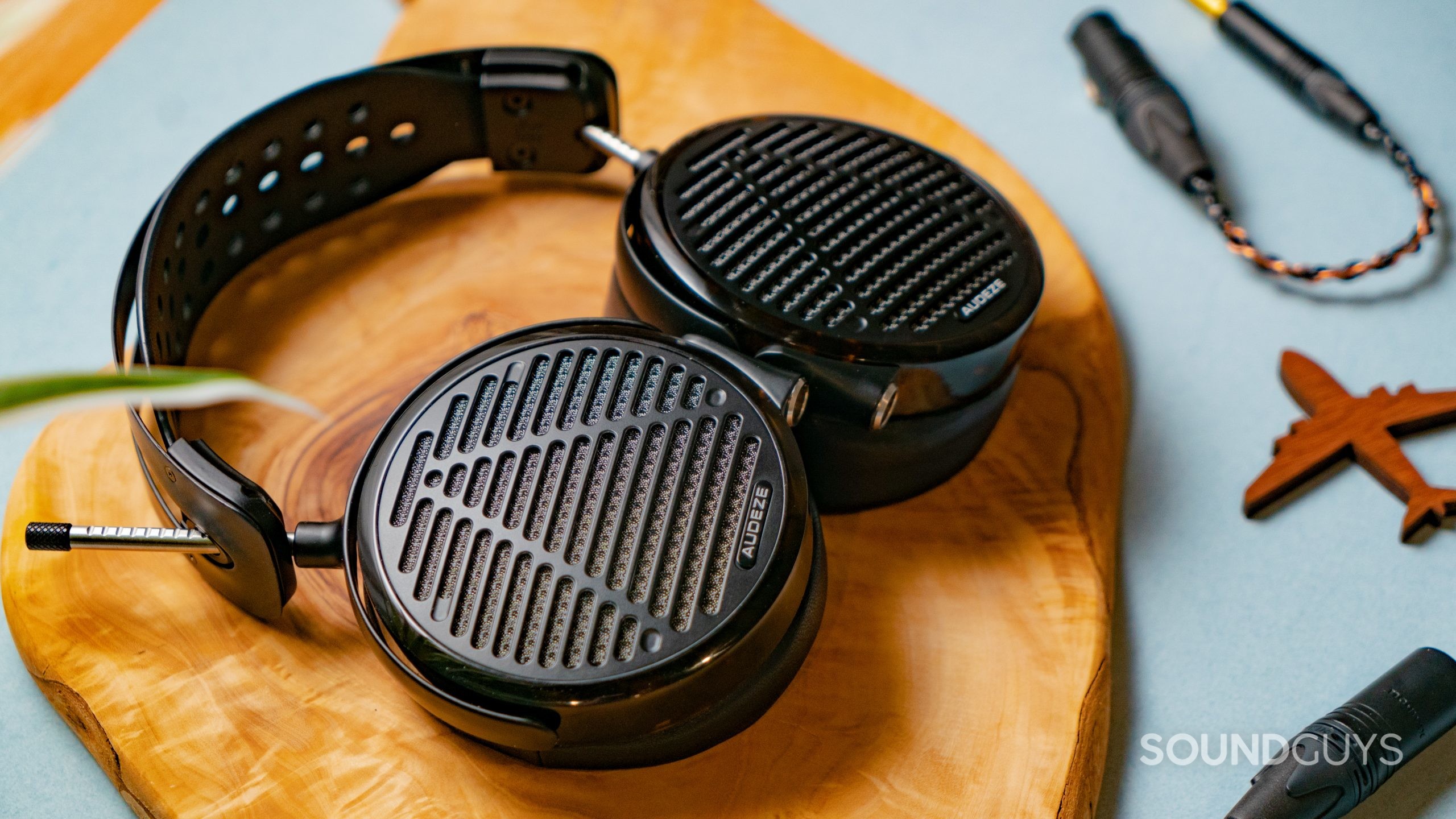
The main thing to keep in mind with open-back headphones are that they have slightly different ideal applications than closed-back headphones. Sure, you’ll find overlap. After all, they’re headphones. Let’s consider some of the defining features of open-back headphones.
Frequency responses on open-back headphones
Loading chart ...
Generally speaking, the frequency responses found on open-back headphones will be light on bass. Nevertheless, this does not necessarily count as a bad thing. Traditionally, the domain of open-back headphones is in sound mixing and mastering. There, the more “neutral” leaning mids and bass represent a more accurate presentation of audio without masking any warts that need edits. Audio enthusiasts gravitate towards these legacy studio-style tunings for the lack of overtly hyped frequencies in their favorite music.
With the ambient sound of your room and the absence of pressure from sealed closed-backs, the experience of sound can feel more “natural.” The immersiveness of open-back headphones will vary from one model to another, but the sense of space, depth, and positioning offered by even inexpensive open-back headphones rivals or outdoes that of some of the best closed-back headphones. That’s simply one of the strengths of open-backs. You can hear more easily where in space an instrument is located, a boon for complicated and busy mixes.
Isolation, or why open-back headphones are the ultimate transparency mode
Loading chart ...
Keeping this short and sweet, open-backs offer effectively zero isolation. Arguably, semi-open-back headphones like the AKG K240 Studio might block a little more environmental noise than completely open-back headphones, but the difference remains minor. You buy open-backs to listen in a quiet space, like your home. Not only do they not isolate much at all, they also leak sound. So, you really don’t want to listen to your guilty pleasure band on a crowded bus because it’ll be a pretty revealing experience for you and annoying for other passengers.
Some, but not all, open-backs need headphone amps
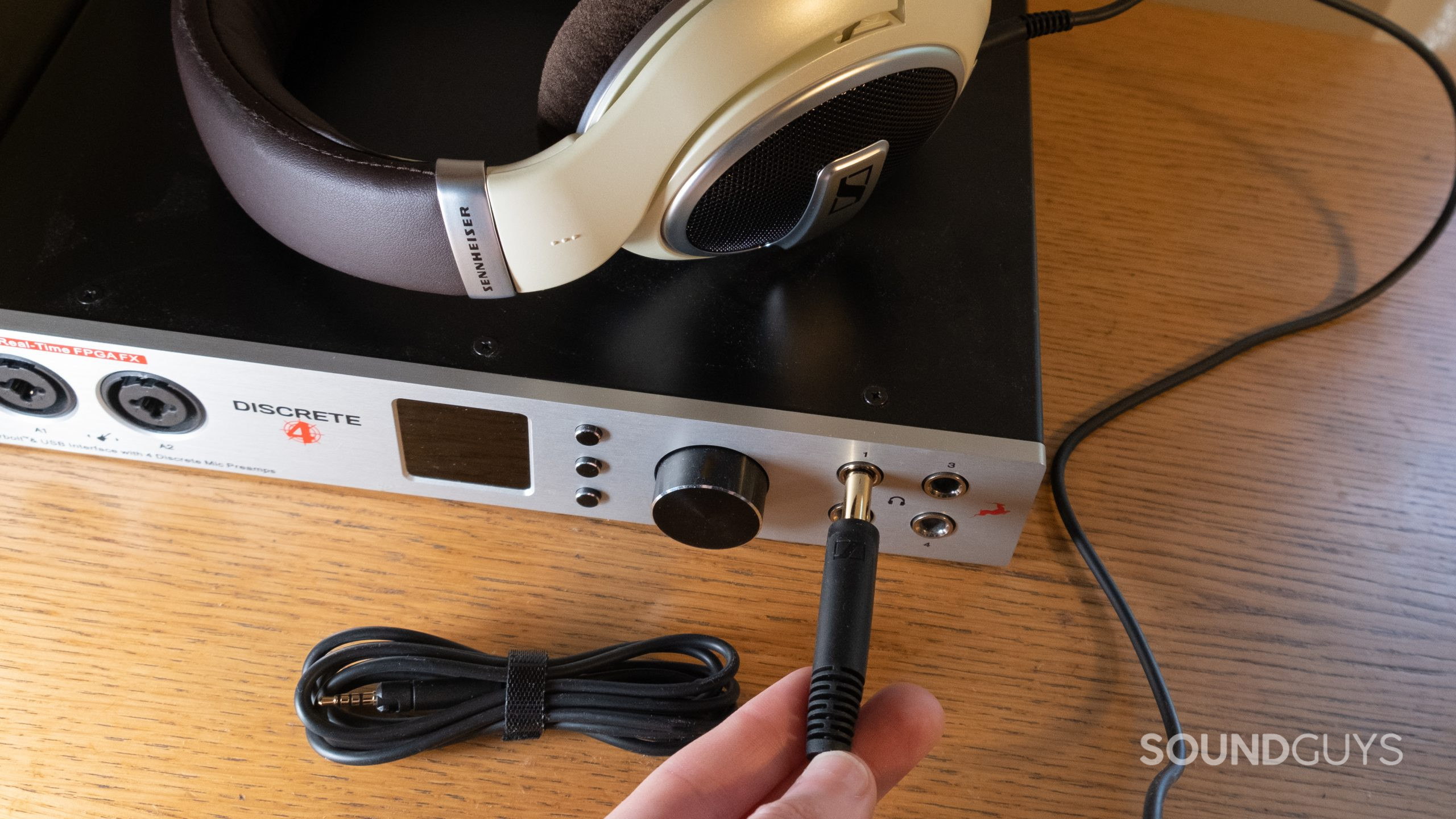
Given that you’ll listen to your open-back headphones at home or in a studio while editing, you’ll be able to supply adequate juice to your headphones with an amp. Not all open-back headphones require an amp, but many do, and it’s a barrier to entry as an additional cost. Many basic audio interfaces come with better headphone outputs than just your computer, so you don’t necessarily need the most expensive boutique headphone amp.
In any case, not every open-back headphone needs an amp. The lower the impedance (measured in ohms) and greater the sensitivity (usually measured in dB/SPL per milliwatt), the less power they need. Still, you won’t break your headphones if you take a risk by buying them, and if they sound super quiet, get an amp.
How we test open-back headphones
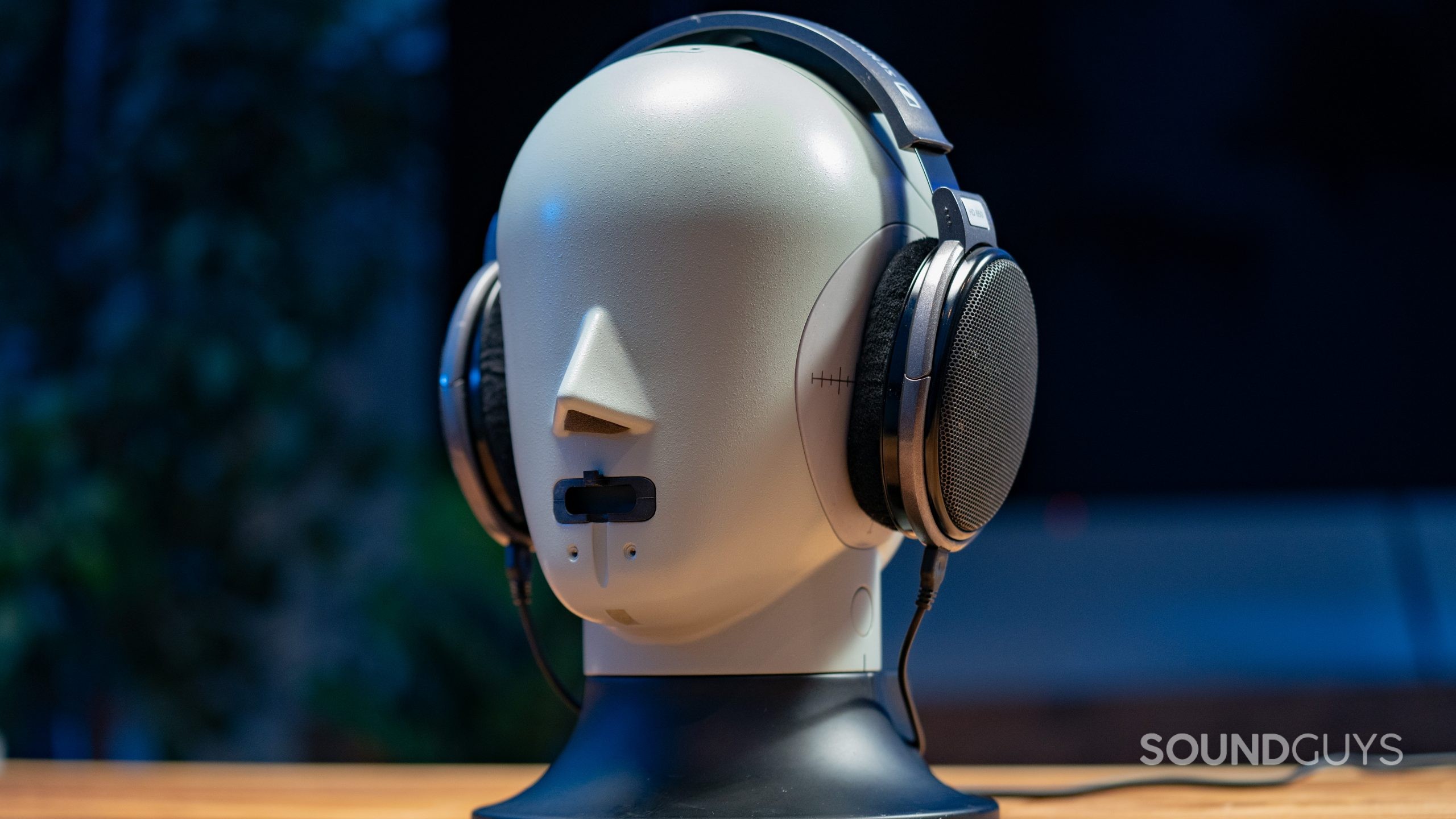
We subject all of our review units to the same testing methodology so that the results are directly comparable. Besides our objective measurements, we also rely on the experience and knowledge of our editors and writers to assess each product that we test with real world use. Through this combination of objective and subjective measures we arrive at our conclusions, keeping in mind how the headphones are going to be used and who will use them. After all, we want to ensure that what you get is what is promised on the box.
How we choose the best open-back headphones
Relying on a combination of our team of experienced writers and editors with backgrounds in audio, and objective measurements, our picks for the best open-back headphones are the result of thorough investigations into what works best for different users. If money were no object, and availability was unlimited, this list might look different. Our picks strike a balanced assessment of different types of open-back headphones for various consumers with a variety of budgets with data to back them up.
Why you should trust SoundGuys
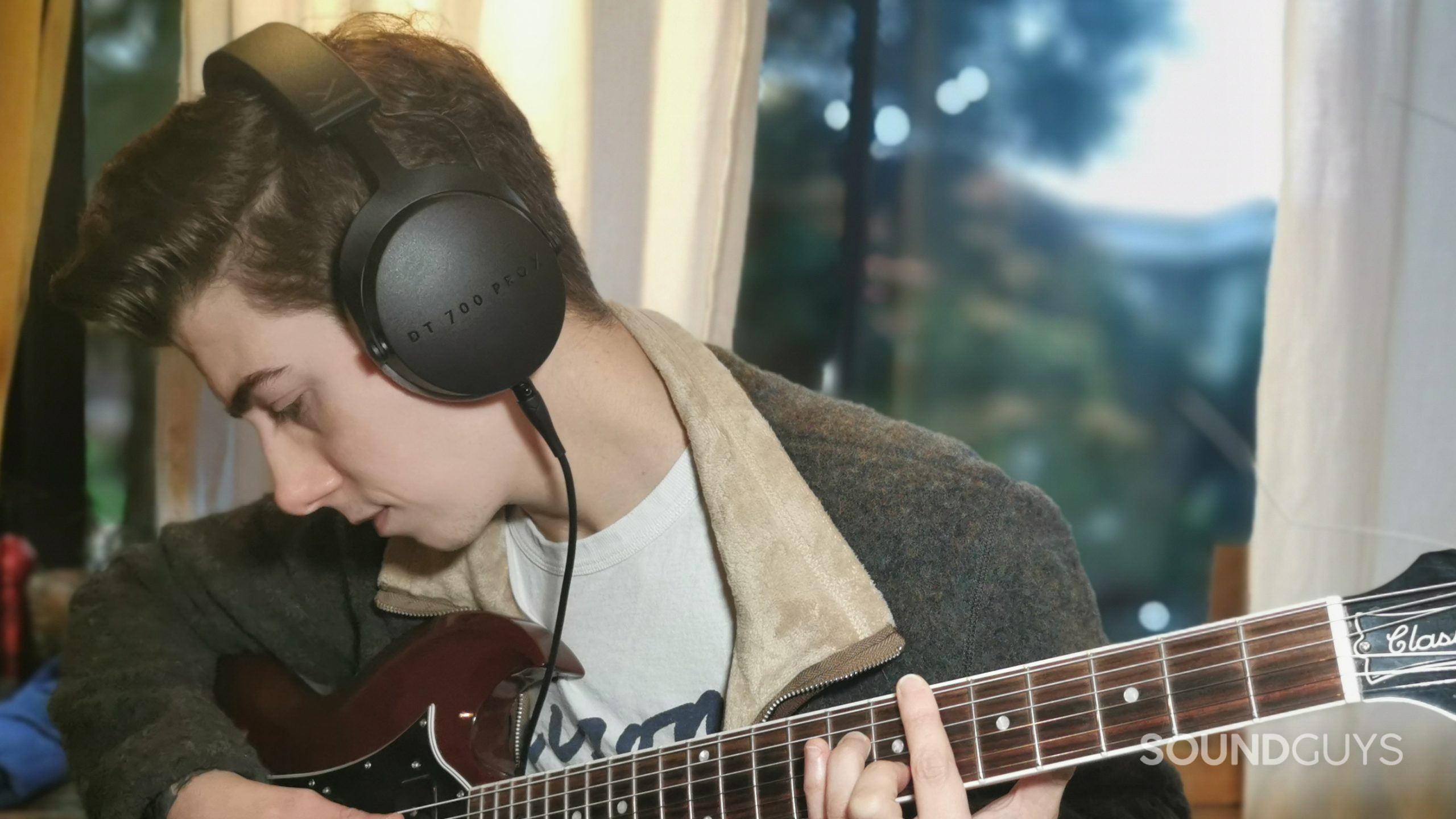
At SoundGuys, we offer free, unbiased reviews and recommendations backed by sound data and experienced reviewers. None of our staff benefits financially from any purchase our readers make. If you choose to purchase an item and click through an affiliate link, the company gains a percentage of the sale, but no individual benefits from one pick over another. Our writers don’t base their suggestions on anything besides merit. We want our readers to continue to use the site, so it’s in our best interest to ensure that our picks continue to instill trustworthiness based on objective measurements and rigorous real-world testing by knowledgeable staff. This all falls under our code of journalistic ethics.
Frequently asked questions
Most open-back headphones have quiet bass than closed-back headphones. When simplified, the reasons come down to bass frequencies in an open housing do not color the frequency response resonances like closed-backs do. Think of open-back headphones as small open speakers suspended in front of your ears, so there’s a whole room as a backdrop, but no build up of bass either. Engineers also tend to encounter distortion when trying to compensate for the sub-bass volume roll off in open-back designs.
If you’ve ever heard a car with the windows and doors shut blasting the sound system, and all you can discern is the bass, it’s because low frequencies have longer waves and will go further and longer than high frequencies. Play a song on your open-back headphones and the bass escapes easier than treble without the sealed housings to contain those low frequencies.
Provided you game in an otherwise quiet room, you can definitely use open-back headphones for gaming. There are a couple of things to note, such as the headphones likely will give a good indication of where sounds are located across the stereo field, which is great for first person shooters for instance. You won’t get as much low end volume as closed-back gaming headsets typically offer. Lastly, your selection is pretty limited if you need a microphone on your headphones. Watch out for impedance and sensitivity to make sure you can get adequate volume if you choose to use standard open-back headphones.
The point of open-back headphones lies in their design which allows air and sound to pass through the back of the ear cups. This results in a more natural-sounding illusion of 3D space, closely mimicking the experience of listening to live music. The open design also reduces ear fatigue, making them ideal for extended listening sessions.
Yes, other people can indeed hear what you’re listening to through open-back headphones. The open design allows sound to escape freely from the back of the ear cups, leading to sound leakage. This means that in quiet environments, nearby individuals may be able to hear the audio being played through the headphones.
Open back headphones are better for mixing because they provide a more accurate representation of sound. Their ability to deliver a natural stereo image and minimize coloration results in a clearer distinction of instruments and vocals, aiding in precise audio editing and mixing decisions.
Audiophiles like open-back headphones for their superior sound quality. The open design facilitates a detailed, airy, and spacious sound reproduction, offering a listening experience that is closer to natural acoustic performances. This enhanced sound fidelity is highly prized among enthusiasts seeking the most authentic listening experience.
Open-back headphones can be more expensive due to several factors, including the complexity of their design, the quality of materials used to achieve the desired acoustic properties, and the niche market they serve. The emphasis on sound quality and fidelity often requires advanced engineering and high-quality components, contributing to their higher price.
Open back headphones are often perceived to have less bass not because they lack the capability to produce low frequencies but because their open design does not trap bass frequencies in the same way closed-back models do. This can result in a more balanced sound profile, with bass that feels more integrated into the overall listening experience rather than overpowering.
Whether open ear headphones are healthier is subjective and depends on the listening habits and volume levels of the user. However, they can be considered healthier in the sense that they allow for better air circulation around the ears, potentially reducing ear fatigue and discomfort during prolonged use. They also encourage lower volume levels due to their natural sound leakage, possibly reducing the risk of hearing damage.